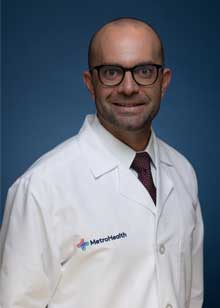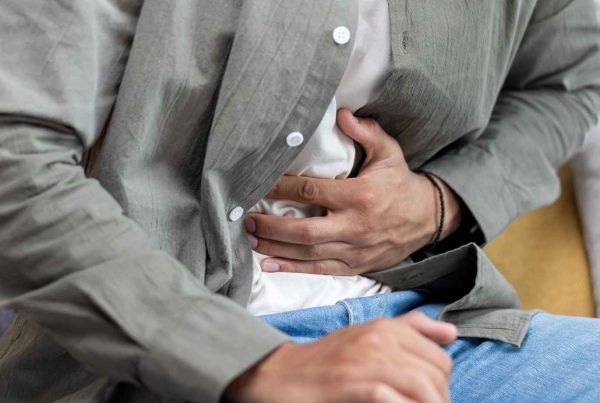Head and neck cancer is on the rise. HPV, or the human papillomavirus, is the surprising reason.
Contributed by Akash N. Naik, MD | Otolaryngology (Ear, Nose, Throat)
“HPV-related head and neck cancers have surpassed cervical cancer in the U.S.,” says Akash Naik, MD, a Head and Neck cancer surgeon at MetroHealth.
According to the CDC, more than 42 million Americans are infected with HPV and 13 million more Americans, including teens, get the virus each year. Although most of the infections clear up within 2 years, some types of HPV cause cancers of the cervix, vagina, vulva, penis, anus, and back of the throat (including tonsils and tongue).
HPV-Related Head and Neck Cancer Risk Factors
Though almost everyone who has ever been sexually active has been exposed to HPV, the majority of people clear the virus with no ill effect. But for some people, HPV can be non-active for many years and then slowly develop into pre-cancerous cells and, eventually, cancer. And unlike cervical cancer, which can be detected early, there’s no good screening test for head and neck cancer at the moment.
Signs and Symptoms of Head and Neck Cancer
Treatment and Prevention
Treatment options include surgery, chemotherapy, and/or radiation.
Transoral robotic surgery has been a game changer, allowing surgeons to avoid complicated surgeries, and instead reaching the tumor through the mouth—which often leads to a quicker recovery and good outcomes.
The outlook is best when doctors catch HPV-related head and neck cancers early. That’s why awareness is so important.
Since the introduction of the HPV vaccine in 2006, HPV-related cancers have dropped significantly. The vaccine consists of 2 doses when given at the age of 11-12 years. For children 15 and older, 3 doses are needed. For people aged 15-26, the vaccination is still recommended. For adults over 26, talk to your primary care provider. For more information, click here.
“If you have a painless neck mass that isn’t going away for several weeks, definitely have it evaluated,” says Dr. Naik.
Head and Neck Cancers
Medical and surgical expertise from our caring team of providers in the treatment of head & neck cancers. To schedule an appointment, call 216-778-4391 Option 4. Or visit: metrohealth.org/otolaryngology/head-and-neck-cancers












